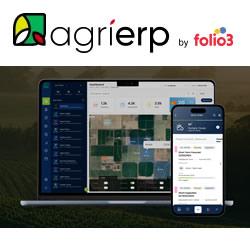World's leading food & farming businesses launch action plan to scale regenerative farming, warning speed of progress 'must triple' to tackle the impacts of climate change
-The Agribusiness Task Force, part of the Sustainable Markets Initiative (SMI), today released its action plan focused on how to scale regenerative farming – an approach which aims to cut carbon emissions whilst seeking to promote and improve soil health and biodiversity. -The report — produced by the 12-strong cross-industry Task Force - highlights an urgent need for consistent metrics, better government policy incentives and a transformation of sourcing to spread the cost of transition to more sustainable practices.
A group of the world's largest and most influential agribusiness companies and organisations has today launched an action plan to scale regenerative farming globally to tackle the impacts of climate change and biodiversity loss.
The SMI Agribusiness Task Force's report "Scaling Regenerative Farming: an action plan" warns that adoption rates are currently lagging far behind the rate needed to effectively tackle climate change. Fresh analysis by Systemiq has revealed that regenerative farming - whilst expanding its footprint over recent years - must triple its rate of growth to deliver against the world's need to limit climate change to 1.5 degrees. It needs to make up at least 40% of global cropland by 2030, up from around 15% today.
The Task Force calls for common metrics and market-based financial incentives for environmental outcomes, targeted government policy and an overhaul of food sourcing - all to make regenerative agriculture a 'no brainer' business decision for farmers.
The Task Force is comprised of executives from many of the world's largest and most influential agribusiness companies and organisations, united by a common ambition to enable regenerative farming to become mainstream: Bayer, HowGood, Indigo Agriculture, Mars, McCain Foods, McDonald's, Mondelez, Olam, PepsiCo, Sustainable Food Trust, Waitrose & Partners and Yara International.
Read more here: https://www.sustainable-markets.org/taskforces/agribusiness-task-force/
Featured Product

